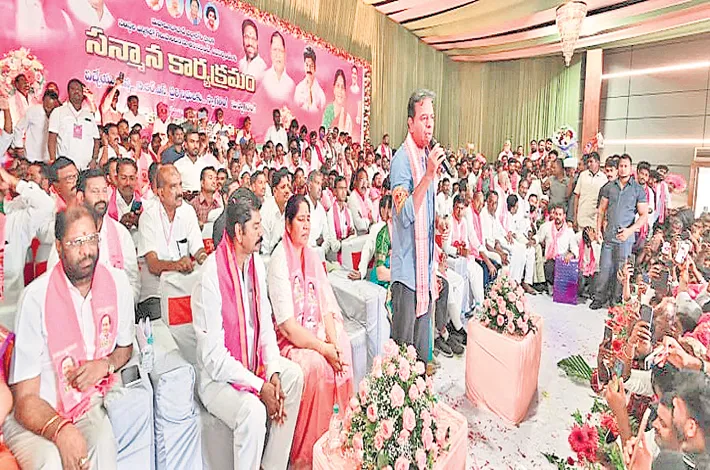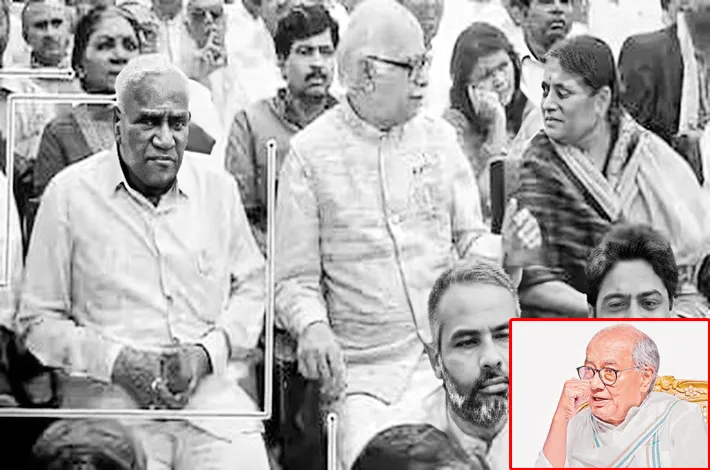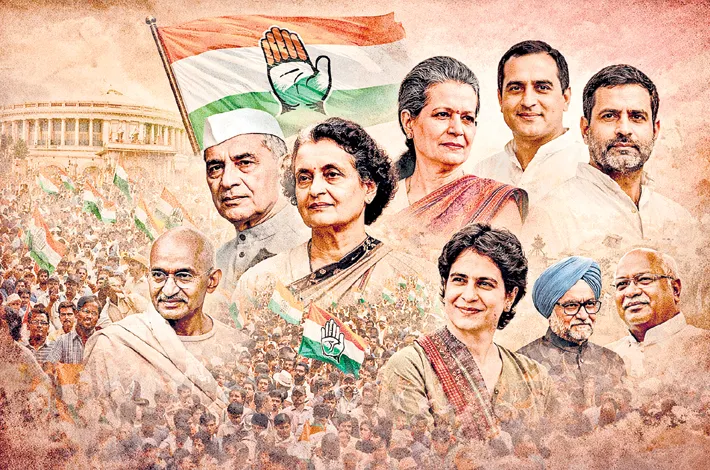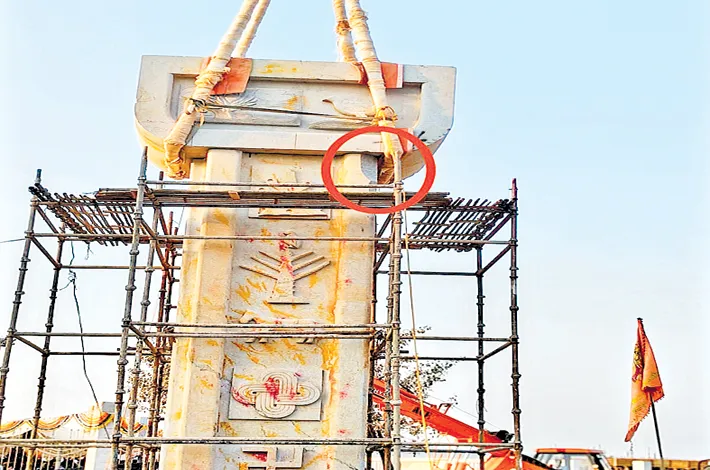Mystery of Midnapore
16-10-2025 12:00:00 AM
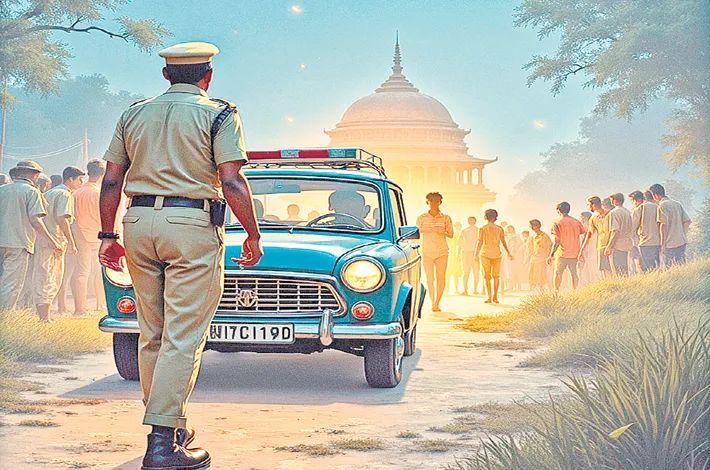
The humid night air in Midnapore clung to Inspector Rajesh Singh like a suspect's alibi—thick, unyielding, and full of hidden lies. It was October 2025, and the Kasai River, that serpentine vein of West Bengal, murmured secrets under the moon's indifferent gaze. Midnapore, this forgotten corner of the world where Kolkata's skyscrapers faded into paddy fields and crumbling zamindar mansions, had always been a place where history drowned in the present. But tonight, it had coughed up a corpse.
Rajesh arrived at the old Shiva temple on the riverbank just after midnight, his battered Ambassador car sputtering to a halt amid a swarm of fireflies and curious villagers. The body lay sprawled at the temple's chipped stone steps, a silk sari twisted around the neck like a noose of betrayal. It was Anjali Devi, 32, the fiery schoolteacher who'd been railing against the local mill owner's land grabs. Her eyes, wide and accusatory, stared at the starless sky, her throat bruised purple from strangulation.
"Strangled with her own dupatta," muttered Constable Mishra, Rajesh's lanky sidekick, shining a torch on the scene. "No signs of struggle. She knew her killer."
Rajesh knelt, his knees protesting against the damp earth. Midnapore's underbelly was a web of old feuds: the mill owner, Vikram Chatterjee, whose factories choked the Kasai with chemical runoff; the widow Lakshmi, Anjali's estranged aunt, who stood to inherit the family plot; and young Arjun, the activist lover who'd vanished hours before the murder. Rajesh's gut twisted. This wasn't random violence; it was personal, a blade slipped between ribs in the dark.
By dawn, the temple buzzed with whispers. Rajesh interviewed the priest, a gaunt man named Pandit Gopal, whose saffron robes hid trembling hands. "Anjali came here every evening for puja," Gopal said, avoiding Rajesh's eyes. "Last night, she argued with someone—a shadow by the river. I heard voices, sharp as temple bells."
"A shadow?" Rajesh pressed, noting the priest's fidgeting. "Describe it."
"Tall, cloaked in a shawl. Gone before I could see."
Rajesh's notebook filled with scribbles. He drove to Anjali's modest home in the town's labyrinthine alleys, where betel-stained walls leaned like gossiping aunties. Her room was a shrine to rebellion: posters of Tagore and Ambedkar, stacks of petitions against Chatterjee's mill. On her desk, a half-written letter: "Vikram knows the truth about the river poisonings. If I speak, he'll silence me forever."
Bingo. Chatterjee's mill had been dumping effluents into the Kasai for years, turning fish bellies white and children's skin raw. Anjali had evidence—soil samples hidden somewhere. Rajesh pocketed the letter, his mind racing. Motive screamed from every corner.
He tracked Chatterjee to his riverside bungalow, a colonial relic guarded by snarling dogs and armed watchmen. The mill owner, a paunchy man in his fifties with a mustache like a broom, sipped chai on the veranda. "Inspector, this is tragic, but I barely knew the woman. She was a troublemaker, yes, but murder? Preposterous."
Rajesh leaned in, the river's stench wafting up. "Your land deal with her family—convenient timing. And those samples she collected? Where are they?"
Chatterjee's laugh was oil-slick. "Samples? Fantasies of a hysteric. Check her lover, that boy Arjun. He's the one with blood on his hands—radical types always snap."
Arjun was found at a dingy tea stall near the railway station, nursing a bruised jaw and a guilty conscience. "We fought, yes," he admitted, his voice cracking like dry earth. "Anjali wanted to go public with the evidence. I begged her to wait—Chatterjee's men are killers. But I loved her. I'd never..."
His alibi? A midnight train to Kolkata, ticket stubbed and timestamped. Solid, unless forged. Rajesh's headache bloomed; Midnapore's truths were like the river—muddy, shifting.
As dusk bled into the sky, Rajesh returned to the temple. The Kasai lapped hungrily, and a storm brewed, lightning forking like accusations. He retraced Anjali's steps, flashlight cutting through reeds. There, half-buried in silt: a waterproof pouch. Inside, vials of tainted water, lab reports damning Chatterjee. But no killer's fingerprints.
A rustle in the bushes. Rajesh spun, Enfield .32 drawn. "Show yourself!"
The shadow emerged—Lakshmi, Anjali's aunt, her face gaunt under a widow's veil. "Inspector, it's me."
"You," Rajesh growled. "The inheritance. She was going to expose you too—your silent partnership with Chatterjee."
Lakshmi's eyes welled. "She was my blood. But the land... it was all I had left of my husband."
The pieces slammed together. Lakshmi, not the muscle, but the mind. She'd lured Anjali to the temple with a false plea for reconciliation, used the dupatta in a moment of rage when Anjali threatened to disown her. Arjun's fight was a diversion; Chatterjee's threats, a smokescreen. The priest had seen her shawl-clad figure, mistaking it for a man's.
"Why confess now?" Rajesh asked, cuffing her wrists as thunder rolled.
"The river whispered it back to me," she sobbed. "Anjali's ghost in the water. I couldn't bear it."
Back at the station, as rain hammered the tin roof, Rajesh typed his report. Chatterjee would face environmental charges, his empire crumbling like the temple steps. Arjun, exonerated, vanished into the night—perhaps to fight another day. But victory tasted like ash. Midnapore's shadows never truly lifted; they just waited for the next moonless night.
Rajesh lit a beedi, staring at the flickering bulb. In this town where rivers carried sins downstream to Kolkata's indifferent sprawl, justice was just another current—swift, but easily diverted. And somewhere, in the Kasai's depths, Anjali's eyes still watched.





